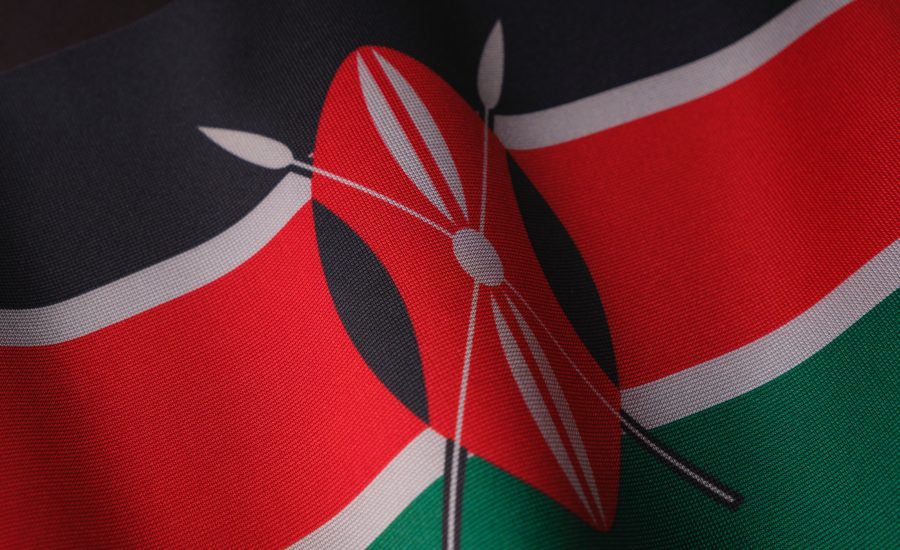Gambling, particularly sports betting, has recently seen a significant rise in popularity in Kenya. This trend is underscored by the proliferation of new betting companies providing a convenient platform for enthusiasts to place their bets, sometimes with as little as ten shillings. The potential for a substantial one-time windfall continues to attract many people.
This surge in interest is also reflected in digital trends. According to an annual report by Hootsuite, betting sites are the most searched category on the internet in Kenya, demonstrating the growing relevance of this sector.
However, an important aspect that seems to be overlooked by many is the tax implications of betting. There is a noticeable lack of awareness about the duties and responsibilities that come with potential winnings, which could lead to unexpected consequences for uninformed bettors.
The Current Tax Landscape
As of 26 June 2023, the Tax Laws (Amendment) Act reintroduced Withholding Tax (WHT) on winnings at 20% when the Finance Bill 2023 was passed. This means that if a punter wins a bet, the betting company will deduct 20% of their winnings and remitted to the Kenya Revenue Authority (KRA).
The bookmaker is responsible for withholding and remitting this tax to the KRA. This withheld amount is final, meaning punters do not need to declare this in their annual Income Tax Returns.
Moreover, betting companies are subjected to a 15% tax on their Gross Gaming Revenue (GGR), calculated as gross turnover less the amount paid out to customers as winnings. This tax must be paid to the KRA by the 20th of each month.
Additional Taxation on Casinos, Lotteries, and Prize Competitions
For those who like to try their luck at casinos, lotteries, and prize competitions, there is an additional tax to be aware of. These winnings are taxed at 15%, as provided by sections 55A, 44A, and 59B of the Betting, Lotteries & Gaming Act. All these laws went into effect on 26 June 2023.
Pending Tax Proposals
Despite the passing of the Finance Act, the state is lining up two proposals on betting firms, which is a major attack on the multi-billion industry.
The Betting Control and Licensing Board (BCLB) proposed a gambling tax charging 15% of the betting firm’s gross gaming revenue. Also, it further adds a one percent monthly levy on the same revenue.
The Kenyan government’s proposal to increase the tax on betting stakes is expected to face strong opposition from betting firms. These firms have previously lobbied Parliament to reduce high taxes, citing that Kenya already imposes some of the highest betting tax rates globally.
Parliament has also expressed concerns that increasing taxes could deter investors and negatively impact the Kenya Revenue Authority’s tax collections.
Earlier this year, betting firms persuaded lawmakers to abandon a proposed 20 percent excise tax on betting stakes, subsequently reduced to 12.5 percent.
This proposed change comes as the betting industry grows, with more firms entering the market to tap into the substantial sums wagered by Kenyans. High unemployment rates and the high cost of living drive the popularity of betting in Kenya.
Current Gambling Laws in Kenya
The rise of gambling in Kenya has not been without controversy, with some players feeling shortchanged when they don’t receive their full winnings. This results from a lack of understanding of the Betting, Lotteries, and Gaming Act (1966) and its implications.
The Betting, Lotteries and Gaming Act (1966) governs betting practices in Kenya. The act defines betting as wagering or staking any money or valuable thing on behalf of any person or agreeing to wager or stake by or on behalf of any person, any money or valuable thing on a horse race, or other race, fight, game, sport, lottery or exercise or any other event.
In accordance with this act, the Kenya Revenue Authority (KRA) taxes the winnings of punters, or people who place bets, when they win. Bettors must understand that betting is considered a form of entertainment rather than a source of income, as it involves consumption rather than wealth generation.
Who is in Charge of Taxing Gambling Proceedings in Kenya?
The Kenya Revenue Authority (KRA) is a government agency tasked with assessing, collecting, and accounting for all revenues due to the Kenyan government. One of these revenue streams comes from the betting industry.
As per the Income Tax Act, Cap 472, betting companies must withhold 20% of winnings for tax purposes. When you win a bet, the betting company will deduct this percentage from your winnings and remit it to the KRA. The withheld amount is final, meaning you do not have to include this in your annual Income Tax Returns.
However, it’s crucial to ensure that the betting company you’re dealing with is compliant with these regulations. If you place a bet and receive the full amount of your winnings without any deductions, this could be a sign of non-compliance on the company’s part. In such cases, it is your duty as a citizen to report these instances to the KRA for further action.
By ensuring that all betting activities are conducted in line with the law, we can maintain the industry’s integrity and contribute to the country’s revenue collection efforts.
Requirements for a Bookmaker
As defined in Kenyan law, a bookmaker is a person or entity engaged in receiving or negotiating bets, either on their own account or on behalf of others.
According to the Income Tax Act, Cap 472, betting companies must withhold 20% of winnings for tax purposes. This law is outlined in Sections 10(g), 34(1)(m), 34(2)(i), 35(1)(i), 35(3)(h) and Paragraphs 3(i) and 5(i) of The Third Schedule, Head B.
For instance, if you win Ksh 50,000 from a bet, the betting company will remit Ksh 40,000 to you and withhold Ksh 10,000 for remittance to the Kenya Revenue Authority (KRA).
Furthermore, bookmakers are subject to a betting tax charged on their gross gaming revenue (GGR) at 15%, as stipulated by Section 29A of the Betting, Lotteries & Gaming Act, 1966. GGR is calculated as gross turnover minus the amount paid to customers as winnings. This tax must be remitted to the KRA by the bookmaker by the 20th of each month.
Additionally, winnings from casinos, lotteries, and prize competitions are taxed at a similar rate of 15%, as provided by sections 55A, 44A, and 59B of the Betting, Lotteries & Gaming Act. Participants in these activities must be aware of these tax obligations to avoid any unforeseen financial implications.
Top 5 Casinos with Lowest Taxes Auto Deducted for Kenyans
1XBet
- Wide range of sports available
- Live streaming option
- Generous bonuses
22Bet
- Generous welcome bonus
- User-friendly interface
- Vast selection of events
PariPesa
- Wide betting selection
- Top notch mobile experience
- Kenyan-friendly promotions
GGBet
- +15% to winning bets
- Live streaming
- Live betting
Helabet
- Fast and secure transactions
- 24/7 customer support
- Mobile Optimization
How We Choose Our List of Casinos with Low Taxes Auto Deducted
Finding an online casino with low taxes deducted is difficult, given the complex nature of the betting landscape. Here are essential factors to consider:
Review of Tax Laws
We start by thoroughly examining the tax laws in Kenya that apply to casinos. This includes the Withholding Tax (WHT) on winnings, which is currently set at 20%, the Gross Gaming Revenue (GGR) tax, which is a tax on the casino’s total income before expenses, and any other additional taxes such as corporate income tax and value-added tax (VAT). We also consider any recent or upcoming changes to these tax laws.
Examination of Casino’s Tax Compliance
Once we clearly understand the tax obligations, we assess each casino’s compliance with these laws. This involves verifying that they are registered with the Kenya Revenue Authority (KRA), checking that they are regularly filing their tax returns, and ensuring that they are deducting the required WHT from players’ winnings and remitting this to the KRA.
Analysis of Player Returns
Casinos with lower tax burdens often have the financial flexibility to offer better returns to players. Therefore, we analyze each casino’s payout percentages, representing the amount of money returned to players as winnings.
We also look at each casino’s odds, as more favorable odds can lead to higher potential winnings for players.
Consideration of Other Fees
In addition to taxes, there might be other costs that could reduce players’ winnings. These can include service fees charged by the casino, transaction fees for deposits and withdrawals, and any other miscellaneous charges. We consider all these additional costs in our analysis.
Reputation and Reliability
Lastly, we assess the overall reputation and reliability of each casino. This involves checking whether the casino is licensed by the Betting Control and Licensing Board (BCLB), reviewing the security measures they have in place to protect players’ information and funds, evaluating the quality of their customer service, and reading reviews from other players.
Benefits of Trying Out These Low Tax-Deductible Online Casinos in Kenya
Trying out these online casinos with the lowest taxes has many perks. Here is a look at some benefits available:
Higher Profits
The potential for higher profits is the most immediate and tangible benefit of playing at low tax-deductible online casinos. If a casino has a lower tax rate, a larger portion of your winnings stays with you.
For instance, if you win KES 10,000 at a casino that only deducts 10% in taxes, you’ll take home KES 9,000, compared to KES 8,000 at a casino that deducts 20%.
Increased Play Time
With more of your winnings in your pocket, you have more funds to wager. This could potentially extend your play time, as you have a larger bankroll to play with.
Extended playtime increases your enjoyment and can improve your chances of winning, as you have more opportunities to play and possibly hit a winning streak.
Reduced Financial Burden
Gambling winnings in Kenya are subject to a 20% tax. Playing at low-tax-deductible online casinos can significantly reduce this financial burden. In other words, you can enjoy your favorite games without worrying too much about the hefty tax deductions.
More Value for Money
Every shilling you wager at a low tax casino can yield more returns than a high-tax casino. This translates to more value for your money, making your overall gambling experience a lot more satisfying and enjoyable.
Greater Variety of Games
Lower taxes often mean online casinos have more investment resources in their game portfolio. This can lead to a wider variety of games, from different types of slots and card games to roulette and live dealer games. A wider variety can enhance your gaming experience by providing more options and challenges.
Encourages Responsible Gambling
With less financial pressure from high taxes, players might be more inclined to gamble responsibly. They may feel less need to chase losses or place risky bets to offset the impact of high taxes. This can lead to healthier gambling habits.
Boosts Local Economy
Even with lower taxes, online casinos still contribute significantly to the Kenyan economy. These casinos can contribute to job creation and economic growth by attracting more players and generating more revenue.
Key Factors to Consider When Select Low Taxable Online Casinos in Kenya
There are various factors to consider when selecting your preferred low-taxable online casinos in Kenya. Here are important factors to consider:
Reputation and Licensing
It’s essential to choose a casino with a solid reputation. Look for player reviews on different platforms and note common complaints or compliments. Licensing is equally important.
Casinos should be licensed by reputable bodies such as Kenya’s Betting Control and Licensing Board (BCLB). Licensing ensures the casino adheres to legal and ethical standards, offering a safe and fair gaming environment.
Tax Compliance and Legislation
Tax compliance is critical in the gambling industry. Casinos must adhere to tax laws and regulations, including withholding tax on winnings.
If a casino fails to comply, it can face legal consequences, potentially disrupting your gaming experience. Therefore, ensuring your chosen casino complies with all tax laws is crucial.
Security Measures
Online casinos handle sensitive data, including personal details and financial information. Therefore, they should have robust security measures in place.
Look for SSL encryption, two-factor authentication, and secure payment gateways. A good casino should also have a clear privacy policy detailing how they handle your data.
Payment Options
A variety of payment options is a sign of a good online casino. They should offer methods accessible in Kenya, such as M-Pesa, credit/debit cards, and e-wallets.
Also, check the terms and conditions for deposits and withdrawals, including fees, minimum/maximum limits, and processing times.
Bonuses and Promotions
Bonuses and promotions can add value to your gaming experience, but reading the fine print is important.
Some bonuses may come with high wagering requirements or restrictive terms and conditions. Make sure you understand these before opting in.
Customer Support
Effective customer support is crucial in online casinos. They should offer multiple contact methods, including live chat, email, and phone.
The response times should be quick, and the staff should be knowledgeable and courteous. Check out reviews to gauge the quality of their customer service.
Regulatory Compliance Difficulty
Casinos must adhere to numerous regulations, including player protection and market access. Those doing this well will likely offer a safer and more reliable gaming experience.
Look for transparency in handling these matters, such as clear information about responsible gambling and dispute resolution processes on their website.
Cost and Revenue
Finally, consider the cost of playing and potential revenue. Lower tax casinos might offer better returns but also look at the casino’s payout percentages and odds. These can significantly impact your potential winnings.


